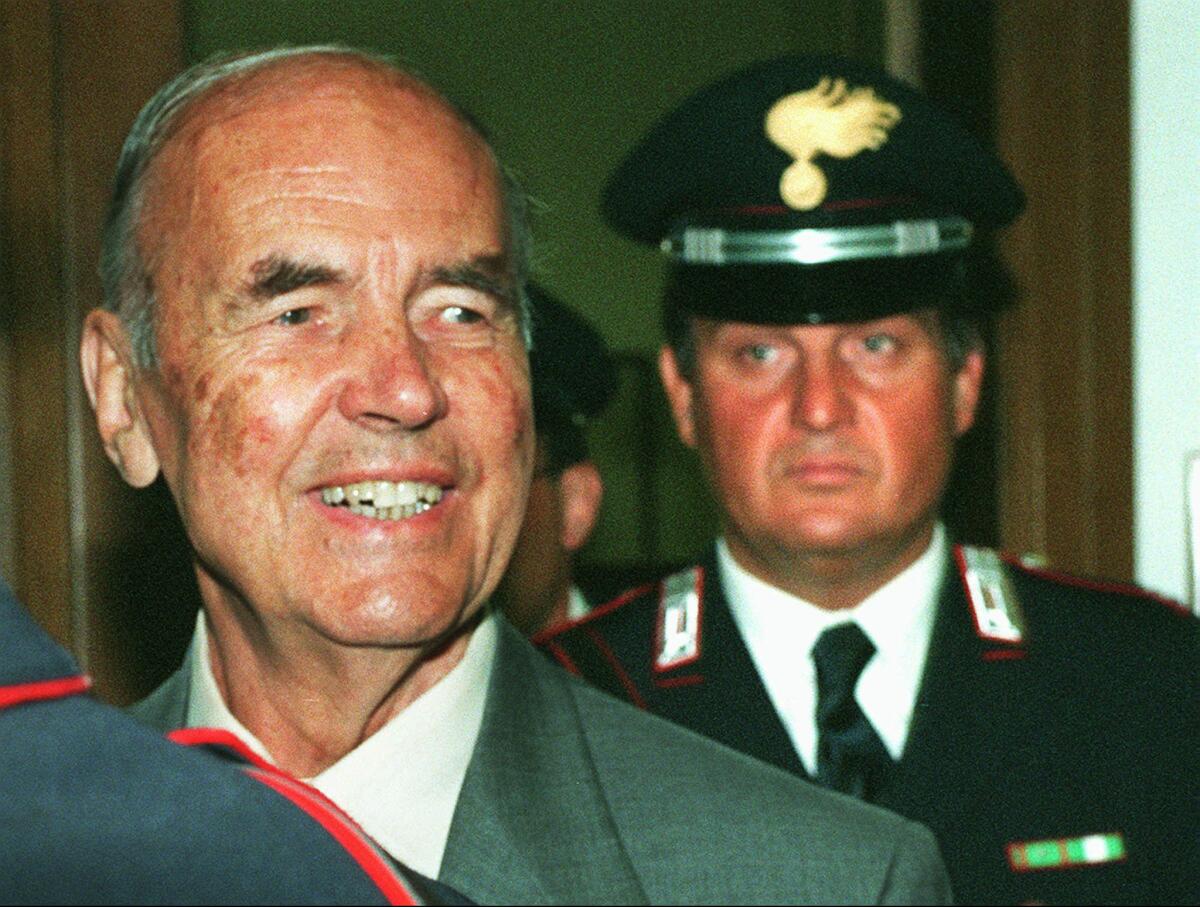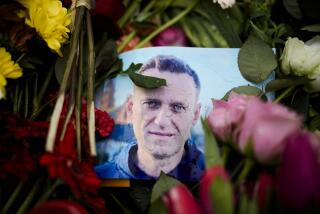Death of Nazi war criminal in Rome creates quandary over funeral

ROME — Italy is debating what to do with the body of Erich Priebke, the unrepentant Nazi war criminal who died in Rome last week at the age of 100.
Denied a church funeral in Rome by the Vatican, the former SS captain, who received a life sentence for his role in a 1944 massacre of 335 Italians, has also been refused burial in Rome, as well as in his adopted home country of Argentina and in his hometown in Germany.
Protesting the decisions, his lawyer Paolo Giachini has said he would consider holding the funeral “in the street.”
Priebke was convicted in 1998 of murdering two victims of the massacre at the Ardeatine Caves near Rome, a reprisal for the killing of 33 German soldiers by resistance fighters. Among the victims were 75 Jewish Italians.
Priebke lived openly in Argentina after the war, and admitted to his past and said he was just following orders when ABC-TV reporter Sam Donaldson found him and interviewed him, prompting Priebke’s extradition to Italy in 1995 and sentencing to house arrest.
Given permission to spend time outside his home, he caused outrage by going to restaurants and shopping. Not long before his death Friday, he claimed the Holocaust never took place.
On Monday, Rome’s archdiocese said it had told Giachini to have the funeral at home “in strict privacy” and that Pope Francis’ vicar for Rome, Cardinal Agostino Vallini, had prohibited any Catholic Church in Rome from celebrating it.
Giachini accused the church of double standards, arguing that Priebke had attended church and confessed regularly. “They wanted him in Rome to judge him and convict him, but now they want to be free of him,” he said.
With the city’s Jewish community threatening to stage street protests if Priebke were buried in Rome, Mayor Ignazio Marino ruled out the possibility.
“It would be like killing the victims a second time,” said Riccardo Pacifici, the Jewish community’s president.
Police, meanwhile, monitored Priebke’s home for possible pro-fascist demonstrations after “Honor to Priebke” and a swastika were daubed on a nearby wall.
The possibility of a burial in Argentina was ended when the country’s foreign minister, Hector Timerman, ruled it out. Priebke’s home town of Hennigsdorf in Germany told the German news agency DPA that only residents or those with family tombs could be buried in its cemetery, thus excluding Priebke.
Italian media reported Monday that a town in Sicily had offered space in its cemetery.
“I propose that he be cremated and his ashes scattered to stop his tomb becoming a place of pilgrimage,” said Pacifici. “At least he would be cremated dead, unlike some of the victims of the camps,” he added.
Pacifici said Priebke’s lack of repentance ruled out forgiveness for him. “There are 335 angels who will know how to deal with a criminal like him,” he said.
ALSO:
Russian police detain migrants who were targets of riot
Obstacles to Iran nuclear deal: Secrets, lies, political infighting
Syria: Car bomb strikes rebel-held town, killing at least 27 people
Kington is a special correspondent.
More to Read
Sign up for Essential California
The most important California stories and recommendations in your inbox every morning.
You may occasionally receive promotional content from the Los Angeles Times.










